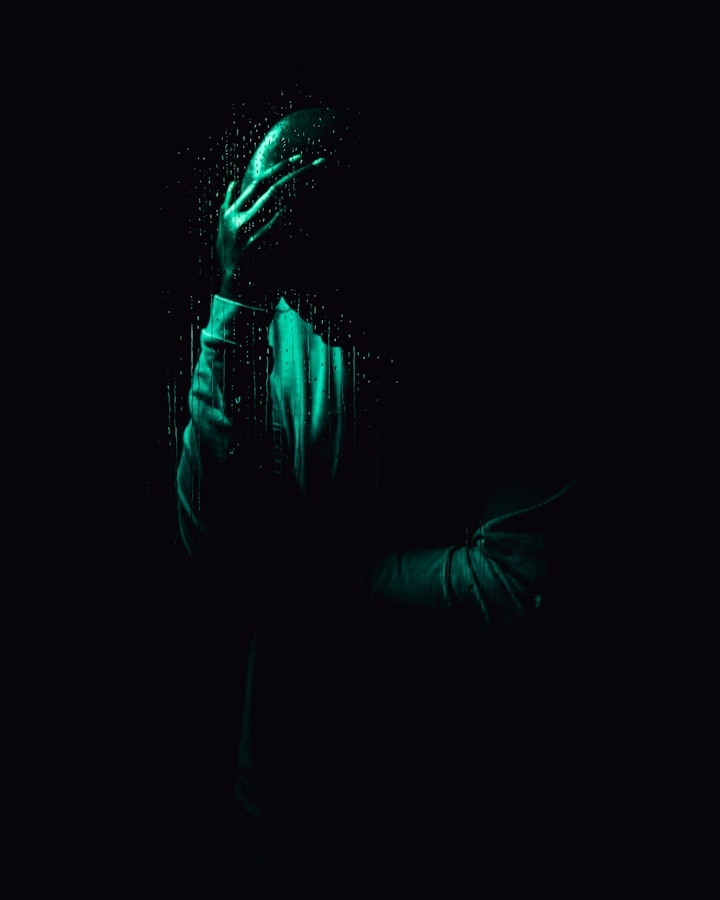Mood disorders
By: Mahpara Mukhtar | Date: June 14, 2023

It is often quite natural when a person has irritability, anger, happiness or sad, and etc. These moods change from time to time depending on the situation and fragility of it. "A mood disorder is a condition that severely impacts mood and its related functions" (DiMaria, 2022). This is where the mental health conditions heavily impact your mood and emotional state, which may later have an effect on the body and mind.
Different types of Mood Disorders
- Depression and its subtypes.
- Bipolar disorder and its subtypes.
- Premenstrual dysphoric disorder.
- Disruptive mood dysregulation disorder.
Depression
A prevalent mental health disorder is depression (either major or clinical depression). Feeling down or hopeless is one of the signs of depression. Additionally, the illness may make it difficult to think, remember, eat, and sleep. This type of mood disorder may be noticed when a person is not in a very cheerful and healthy manner. The symptoms of this disorder may last for a minimum of two weeks or more - which may allow for a clinical diagnosis and treatment. There are different subtypes of depression:
- Postpartum depression
- Persistent Depressive disorder
- Seasonal effective disorder
- Depression with psychosis
Bipolar disorder
The mental health condition bipolar disorder, which affects mood, energy levels, thought processes, and behavior, is a lifelong mood illness. Bipolar illness comes in a number of different forms, all of which are characterized by severe mood swings known as hypomanic/manic and depressed episodes. The subtypes of bipolar disorder include:
- Bipolar 1 disorder
- Bipolar 2 disorder
- Cyclothymia disorder
Premenstrual Dysphoric disorder
A few days after the onset of the menstrual cycle, this form of mood problem disappears. It usually starts seven to ten days before the menstrual period. Premenstrual syndrome (PMS) in a more severe version. The menstrual cycle's associated hormonal changes are thought to be the cause of this illness, according to researchers. Anger, irritation, anxiety, sadness, and sleeplessness are some of symptoms.
Disruptive mood dysregulation disorder
Children and teenagers are affected by DMDD. It entails a lot of angry outbursts and irritation that is excessive for the circumstance. When DMDD develops before the age of 10, it is more severe than intermittent explosive disorder (IED), and rage is typically present.
Symptoms of mood disorders
Though each mood disorder have their own symptoms, there are some universal symptoms that are included in all 4 of the mood disorders. These symptoms include:
- Changes in sleep pattern or difficulty sleeping
- Anxiety
- Thoughts of suicide or self-harm
- Fatigue
- Difficulty concentrating
- Loss of interest
- Hard time making decisions.
These symptoms and many more are somewhat not good when they are ongoing for more than two weeks. As everyday the thoughts changes and these symptoms are not an everyday occurrence, unless a person has the mood disorder.
Causes of mood disorders
- Biological factors - the amygdala and orbitofrontal cortex are the parts of the brain in charge of emotion and feeling regulation. On brain imaging studies, it has been discovered that those with mood problems have an enlarged amygdala.
- Genetic factors - it is clear that mood disorders are probably partially genetic/inherited since those who have a significant family history of a mood illness are more likely to have one themselves.
- Environmental factors - major risk factors for the development of a mood illness later in life, particularly depression, include traumatic experiences, chronic stress, stressful life upheavals including the death of a loved one, and childhood abuse. Diabetes, Parkinson's disease, heart disease, and other chronic diseases have all been related to depression.
Treatment for mood disorders
In order to improve their quality of life, millions of people who suffer from mood disorders receive effective treatment. Psychotherapy, sometimes known as talk therapy, and drugs to assist control chemical imbalances in the brain are both possible treatments for mood disorders.
Psychotherapy
Psychotherapy, commonly known as talk therapy, is a general term for a number of therapeutic approaches that are intended to support a patient in recognizing and altering unhelpful feelings, beliefs, and actions. Some common forms of psychotherapy include:
- Cognitive behavioral therapy - this kind of treatment is regimented and goal-oriented. It is used by mental health experts to treat or manage emotional problems and mental health issues. To enhance mood, they also often evaluate and modify existing routines and behaviors.
- Psychodynamic therapy - the foundation of this style of treatment is the notion that harmful recurring thoughts or sentiments from your childhood that are not conscious (unconscious) might have an impact on your behavior and mental health. This form of therapy is used to help the person with uncovering their unconscious self and reason behind why they have a disorder.
Medication
- Antidepressants - if a patient has a mood condition, a physician could recommend antidepressants. Various forms of bipolar illness and depression are both managed with antidepressants. The doctor may also give other forms of medications that help in the lessening of the symptoms if not at all vanquishing it. Some of the examples of antidepressants include - selective serotonin reuptake inhibitors (SSRIs), serotonin and norepinephrine reuptake inhibitors (SNRIs).
- Mood stabilizers - when a person has bipolar illness or another disorder, these drugs can help control their mood fluctuations. They lower the erratic brain activity. Depakote (valproic acid) , Lamictal (lamotrigine) , Tegretol, Equetro (carbamazepine).
- Antipsychotics (neuroleptics) - Aripiprazole (Abilify®), an atypical antipsychotic (neuroleptic) medication, may be used to treat mania or mixed episodes in bipolar disorder patients. If a single antidepressant is unable to manage a patient's symptoms, doctors will occasionally prescribe atypical antipsychotics. Some of the atypical antipsychotics include - Abilify (aripiprazole) , Geodon (ziprasidone) , Risperdal (risperidone).
Summary
Mood disorders may be the result of chronic mood episodes that last longer than two weeks. These mood disorders include premenstrual dysmorphic disorder, depression, bipolar disorder, and disruptive mood dysregulation. However, therapy for bipolar illness and bouts of depression could last a lifetime.
A third of those who have mood disorders go on to have psychotic illnesses, and a third of those who have anxiety disorders go on to have lifelong anxiety problems, according to study. This study and along with many others show how much of an impact our moods and emotions play in people's daily life. As well as the environments that they live in and how they handle it.
Being emotionally affected by a circumstance is something that all people frequently experience; it does not necessarily mean that you have a mood illness. It is advisable to consult a healthcare practitioner or a healthcare team if these moods and emotions persist and spiral out of control, though. Just know that your healthcare professional is there to help you lessen your symptoms of the disorder.
References:
Gilette, H. (2021). Mood Disorders: Definition, Types, and Symptoms. [online] Psych Central. Available at: https://psychcentral.com/health/all-about-mood-disorders#resources [Accessed: 14 Jun. 2023].
Cleveland Clinic (2018). Mood Disorders. [online] Cleveland Clinic. Available at: https://my.clevelandclinic.org/health/diseases/17843-mood-disorders [Accessed: 14 Jun. 2023].
DiMaria, L. (2011). The Various Types of Mood Disorders. [online] Verywell Mind. Available at: https://www.verywellmind.com/mood-disorder-1067175 [Accessed: 14 Jun. 2023].





Comments
There are no comments for this story
Be the first to respond and start the conversation.